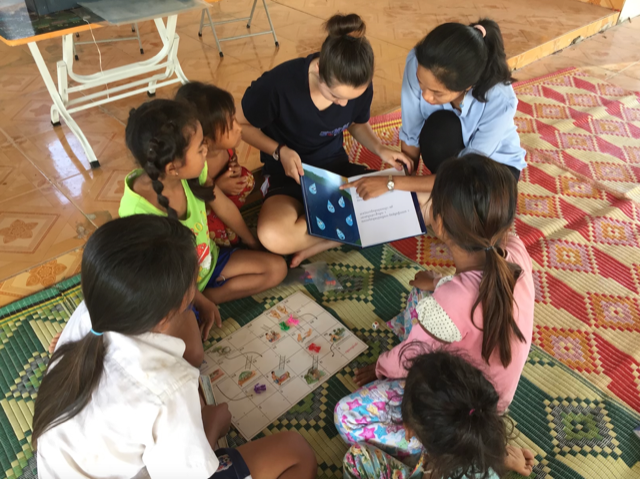
Being awarded a Fulbright grant is a life-changing accomplishment. Hamilton has once again maintained its impressive status of being a top-producing institution for Fulbright students. This year, 31 Hamilton students and recent graduates submitted applications, and eight of them were selected to spend the 2022–23 academic year in a foreign country either conducting research or teaching English through the Fulbright grant.
This year’s grant recipients are Finlay Adamson ’22 and Hannah Petersen ’22 — English Teaching Assistantship (ETA) in Bulgaria, Sarah Bargamian ’22 — ETA in Spain, Emma Berry ’22 — ETA in Taiwan, Morgan Perry ’21 — ETA in Turkey, Anyi Rescalvo ’22 — ETA in Mexico, Amy Zhai ’22 — ETA in Cambodia and Katie Jickling ’15 — Study/Research (S/R) in India. The alternates are Heather Devlin ’22 — ETA in Taiwan, Eamon Gibbons ’21 — ETA in Germany and Emma Morgan ’18 — S/R in Finland.
After submitting their application in Sept. 2021, the recipients were recently notified of their acceptance into the program. Applicants reached out to Ginny Dosch, the student fellowships coordinator at Hamilton. Her role on campus is to facilitate the connection between students’ interests and various fellowship opportunities available to them.
Zhai appreciated Dosch’s expertise in understanding what the Fulbright selection committee was looking for so she could best market her experiences and strengths. When initially meeting with Dosch, Zhai was interested in pursuing a Watson fellowship, but during her time at Hamilton she “became more passionate about teaching, more specifically, not just education or working with kids.” The teaching focus of a Fulbright ETA grant ultimately fit her interests more.
Zhai will spend ten months in Cambodia, a country she developed a personal connection to when she did her capstone project for her 10th grade International Baccalureate program. At the time, she was living in China and attending an international school there. She chose to write a bilingual children’s book in English and Khmer, the language widely spoken in Cambodia. Several years later, she visited Cambodia with a service trip and hopes to visit the town she volunteered in this upcoming year. Since the ETA Fulbright program in Cambodia is new, there were only five other people selected for it. Zhai is excited to speak with them and learn why they were also drawn to the country.
In the past, Cambodia has struggled with its educational opportunities. The Cambodian genocide (1975–79) lead to the death of 1.4 million people, especially educated lawyers, doctors and police officers. As a result of this tragedy, the current Cambodian population is predominantly young and, as Zhai observes, “they’re rebuilding their education system. They see it as a way out of poverty and upward mobility.” She notes that even from a young age, Cambodians buy into the idea of healing poverty through education, a mission that she is passionate about nurturing through her teaching.
Although Zhai has yet to learn of her exact placement, she will either be in Phnom Penh or Siem Reap, two of the biggest cities in the country. She hopes to explore the surrounding area, saying “I want to be part of that community and not just a visitor.”
As a Fulbright scholar, Zhai can volunteer, attend community events and join organizations, all of which will allow her to become fully immersed in the country. She was also inspired by the opportunity to develop her interest in speech pathology while abroad. Since Cambodians speak using sounds that are very different from English, Zhai wants to “experience the foundations and basis of the English language and how we teach those sounds.” Moreover, Zhai believes her experiences “implementing curriculum and being creative with lessons” will help her to convey these foundational English speaking skills to the Cambodian students, in turn preparing her for a successful career in speech pathology.
















